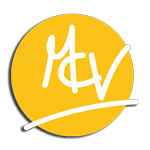Science says: the embryo is a group of cells. But when science says: it is only a group of cells it wonders off, it is philosophy, a bad kind of philosophy.
Ethics, better, bioethics, is not science and it must not be. It must not see, but realize, interpret and decide.
Ethics cannot refuse science, so it repeats that the embryo is a group of cells. But ethics, differently from science, must go past scientific data: embryo is not only a group of cells.
Bioethics suspects of something in the embryo that cannot be reduced to embryos, but something richer and more intense than cellular entity.
Two are the ways bioethics follows: the embryo as a person and as a personal project, only distinguishable in the abstract.
In fact we cannot define the person as a fullness entity to which we can oppose something partial that cannot be considered as a person.
This “something” is going to become a person, this something is a personal project, not a thing. Ultimately, the person, like conscience, is a process, whose seed is the embryo. If a baby is potentially richer than an adult, just imagine the embryo.
The conflict between science and ethics is a false conflict. It can only come out from a science that philosophises and an ethics that refuses science. A conflict between a bad science and an ethics that wants to be science itself.
Politically speaking, according to us, the referendum, must not be disposed off, but it requires an articulate and dialectic approach, according to our greatest humanistic tradition. We are not exorcists.
Priest Dr. Franco Ratti
Issued on
- The newspaper “Liberazione” 17th February 2005
- The newspaper “Corriere dell’Irpinia” 19th February 2005
This article is available in Italian too
